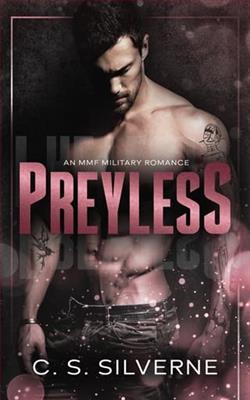Page 25 of Brutal Union
"Four shelves," he corrects. "But there's more in the library. Including a first edition of If on a winter's night a traveler."
I nearly choke on my carbonara-infused eggs. "You have a first edition Calvino?"
"Several, actually. My mother collected them." Something softens in his expression. "She loved how he played with the concept of reading itself. The relationship between reader and story."
"The way he breaks the fourth wall," I say, forgetting for a moment who I'm talking to. "Making the reader a character in their own story."
"Exactly." He looks genuinely pleased. "Most people find it pretentious."
"Most people don't have patience for metafiction." I take another bite of the eggs, which are frustratingly perfect. "Though I always thought Invisible Cities was his masterpiece."
"The conversation between Marco Polo and Kublai Khan about cities that may or may not exist." He smiles slightly. "Every city is Venice in the end."
"Or every city is a reflection of the observer's mind," I counter. "That's the whole point—we see what we're prepared to see."
He studies me with an expression I can't read. "Is that what you think you're doing here? Seeing what you're prepared to see?"
"I think," I say carefully, "that Calvino would find our situation fascinating. Reality imposed by force, but perception still somehow negotiable."
A short laugh escapes him—genuine, not calculated. "My wife, the philosopher."
"Your prisoner who happens to read," I correct, but there's less bite to it than usual.
"Speaking of reading." He stands to refill my coffee. "Those war strategy books you definitely didn't take from my library—finding them useful?"
Heat floods my face. "I don't know what you mean."
"The note you left in the margin of Clausewitz was particularly insightful." His tone is casual, but I catch the glint of amusement in his eyes. "About how his concept of friction in war applies to territorial disputes in Chinatown."
I freeze, fork halfway to my mouth. "You found that?"
"'The Torrelli family's weakness isn't their soldiers, it's their supply chain friction.' Direct quote." He's definitely enjoying this. "You were right, by the way. We've been approaching them wrong."
"How did you—when did you—"
"Last night. You're not as subtle returning books as you think." He leans against the counter, watching me with dark eyes that hold more amusement than threat.
The sunlight is a splash of rose gold across the countertops, and the hint of garlic and ham fills the air.
"This is good," I say, gesturing to the eggs, needing to fill the silence that's grown too comfortable. "Really good."
"Two weeks, and that's the first genuine compliment you've given me." His tone is light, but there's something underneath it. Satisfaction.
The days have blurred together into a routine established without my conscious consent. He leaves for business. I read.He returns. We eat dinner. We sleep in the same bed, me clinging to the edge like it might save me, him giving me space I didn't expect. Every night, I touch myself thinking of his mouth between my legs, hating myself for needing what only he can give me.
"You haven't earned many compliments," I counter, but there's no real bite to it.
He stands to refill my coffee, and I realize he knows exactly how I take it. When did he learn that? When did I stop noticing him watching?
He takes a sip of his espresso, watching me over the rim with those dark eyes that see everything. "You're not a prisoner here, Valentina. You're my wife."
"A wife you forced at gunpoint," I remind him, needing to reestablish boundaries that keep blurring.
"Yes," he agrees simply. "But a wife nonetheless. And I take care of what's mine."
The word 'mine' makes me think of how he destroyed that man's hand for touching me. How he holds me when nightmares wake me. How he's made this space feel safe despite everything. How wet I get every time he asserts his possession.
"I'll unlock the library," he says.















